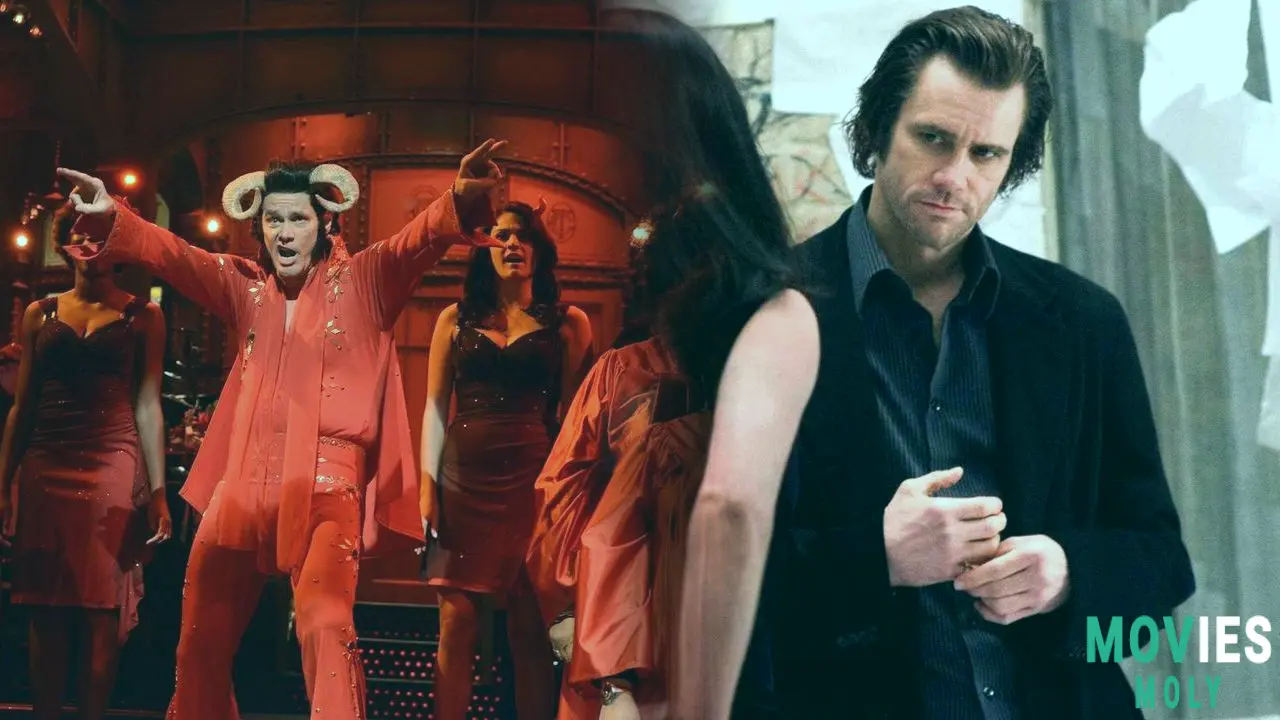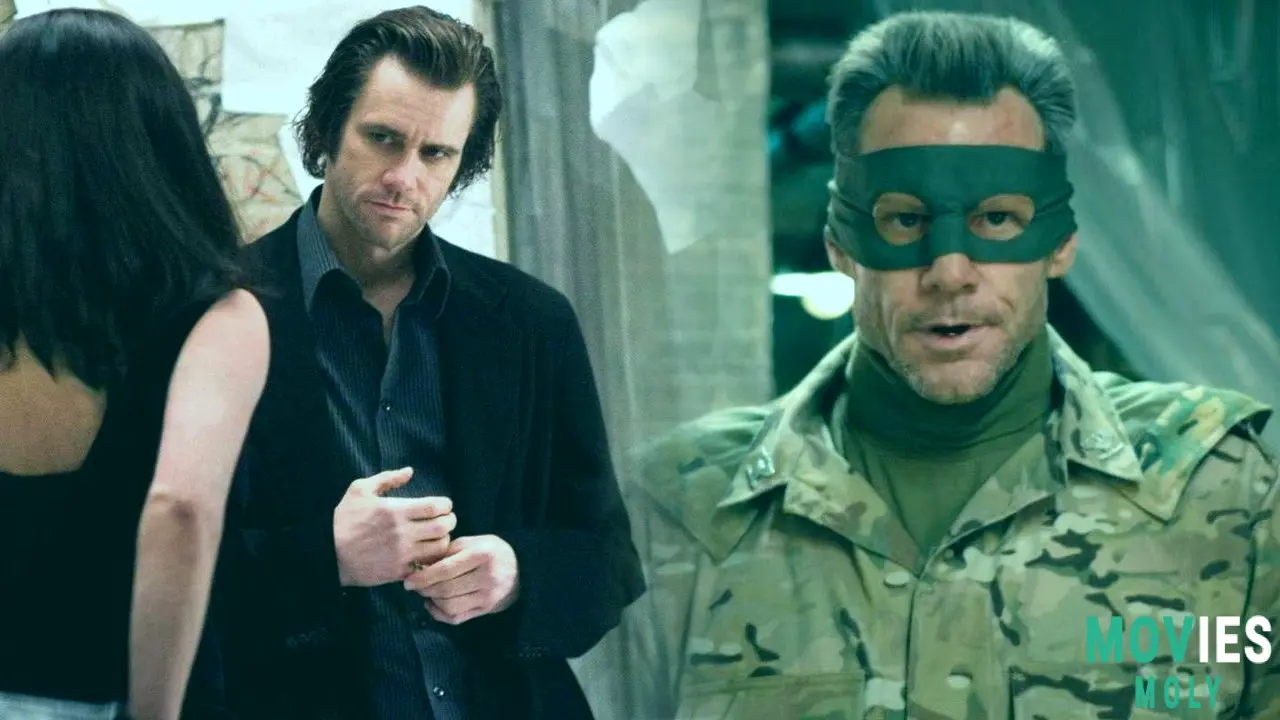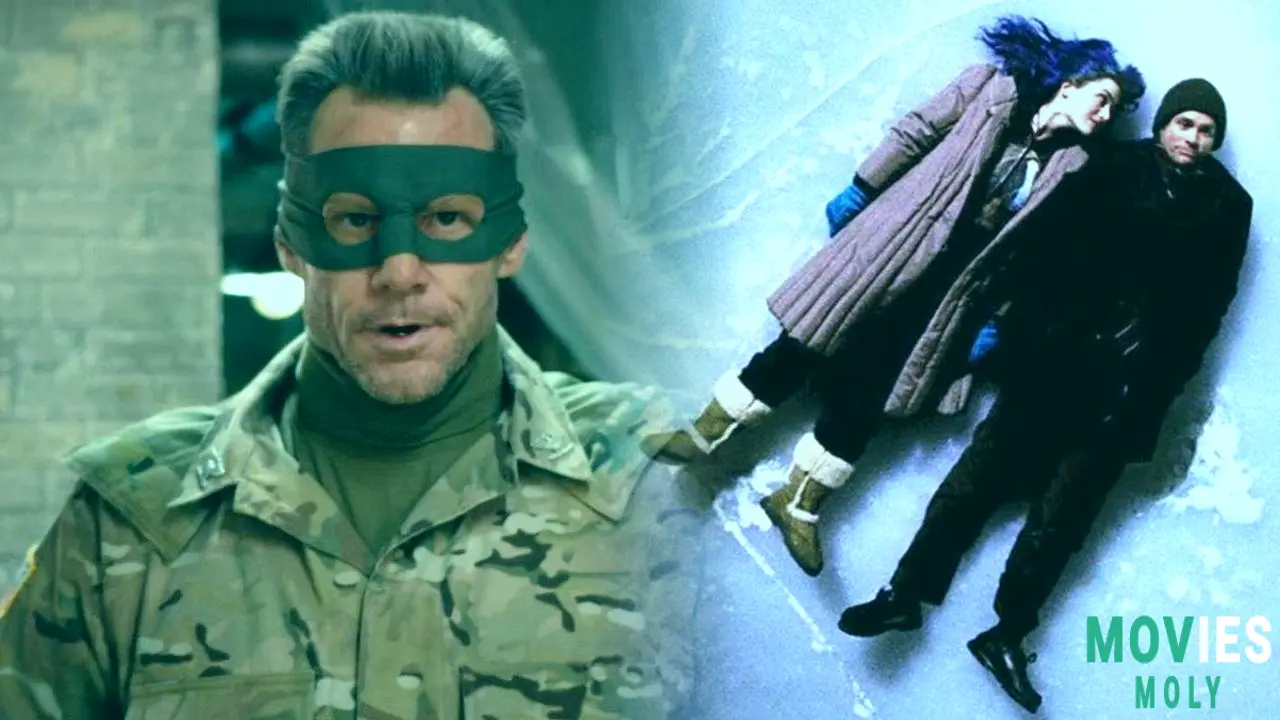There's always been an unsettling genius to Jim Carrey's ability to bend his features into unfathomable shapes, but I've always known that this elastic physique was only a vessel for something considerably more powerful. The cultural conversation frequently portrays his iconic comedic performances - the torpedo-limbed Ace Ventura, the cosmically wounded Cable Guy, and even the technicolor chaos of Stanley Ipkiss in The Mask - as an entirely different universe from the quietly devastating Joel Barish in Eternal Sunshine Of The Spotless Mind. This, to me, represents a basic misunderstanding. Carrey's genuine vulnerability in Eternal Sunshine was not an escape from comedy; it was the raw nerve revealed after years of playing delight.
Having followed his work since the anarchic days of In Living Color, I noticed thematic echoes long before Michel Gondry's masterpiece. Even in his most extreme physical humor, Carrey conveyed a tangible desperation—a "psychotic belief system," as he described it to Howard Stern—that hinted at an underlying rift. In 2004, this wasn't just an actor broadening his range; it was a guy uncovering his truth, finally using that scary charm to embody pain rather than deflect it.
There's no doubt that the New York Times proclaiming it the best sci-fi film of the twenty-first century emphasizes its importance, but this rating overlooks the deeper resonance. Eternal Sunshine stands out not only for its genre invention, but also for Carrey's ability to transform his lifelong struggle with identity and solitude into cinematic gold. Watching Joel Barish beg to keep even the remnants of his shattered love affair feels less like watching a character and more like witnessing the soul beneath Fire Marshall Bill's melting visage.
Comedic mastery was always a disguise for something deeper.His endlessly malleable face concealed a desire for solid ground.
Every exaggerated grin and distorted grimace from the 1990s shouted anxiety. Even at the height of his wacky movie fame, Carrey was not selling happiness, but rather the grueling act of it. His notoriously ill-fated SNL tryouts, in which he explored the intricacies of a "Post-nuclear Elvis," highlighted this core tension early on: beneath the farce lurked a fixation with fragmentation, with identity weakened by circumstance. Think of his characters: Truman Burbank is locked in a fabricated utopia, Andy Kaufman disappears into crafted identities, and Lloyd Christmas exudes delusional brightness. These were never simply comedy; they were blueprints for Joel Barish.
Carrey himself expressed it with remarkable vulnerability: "Jim Carrey was a less intentional figure... "I played the guy who was free of worries so that people who watched me would be free of worries," he admitted on the TIFF Long Take podcast. This admission makes me quite uncomfortable. It recasts his entire comic persona as a protective shell, an intricate fiction created to protect both himself and his audience by banishing darkness with unwavering physical might. The manic comedy was not his core; rather, it was a meticulously constructed dam that kept a deluge of unresolved grief at bay, which he would later mine for art.
Channeling the fractured self became his artistic superpower.

Pain is fueling his best work.
When Carrey turned to drama, it was not an abandoning of humor, but rather an examination of its fundamentals. Films like The Truman Show delves into oppressive monitoring and the suffering underlying polished perfection, themes that echo his own relationship with fame. Man on the Moon delves into the particularly damaging cost of being constantly "on," both for Kaufman and, you suspect, for Carrey himself. By the time Eternal Sunshine arrived, the confluence was unavoidable. Joel Barish's attempt to retain memories of a broken relationship within the fractured passageways of his mind felt like autobiography masquerading as science fiction. He wasn't performing a role; he was exposing the heartbreaking consequences of loneliness.
Carrey is open about this connection: "Every trauma... I could build a ladder to the stars with the things that have happened," he said during a Hollywood Reporter roundtable discussion. "They've all developed into something quite creative... They don't try to lash out; instead, they try to turn it into a bouquet of flowers. This is not method acting; it is emotional alchemy. His Joel Barish is compelling because it weaponizes years of cultivated vulnerability. That resigned, "Okay..." after hearing Clementine's terrible reality? That is not a manufactured resignation; it is the sigh of a guy whose entire career has taught him to absorb pain and transform it into something meaningful.
Why His Misguided Mistakes Prove The Rule.

Even his failures demonstrated his need for authenticity.
I'd be remiss not to mention The Number 23, a film as heavy-handed as its title and critically panned with a 7% Rotten Tomatoes rating. As a thriller seeking forced darkness, it felt like watching Carrey wear an ill-fitting Halloween mask, faking passion but lacking spirit. Whereas Joel Barish's silent suffering resonated because it appeared mined from Carrey's personal awareness of nothingness, Walter Sparrow's obsession seemed fabricated. This oversight emphasizes an important point: Carrey's dramatic impact exists entirely in true emotional ground.
Meanwhile, the overlooked horror-comedy Once Bitten succeeds not through heavy drama, but because it capitalizes on Carrey's talent for depicting wide-eyed innocence destroyed - a milder prelude to Joel's existential deterioration. Only when the wound was genuine did the performance pierce. The huge popularity of Eternal Sunshine stems from Carrey finally finding a receptacle worthy of his darkest scars.
Eternal Sunshine sold the lie that love can be erased, but what is Carrey's true genius? Showing That Pain Is Permanent Ink

The film's enduring power is based on his vulnerability.
Eternal Sunshine is about more than just memory erasure; it is also about the scary, magnificent defiance of the human heart's refusal to forget fully. Joel and Clementine, broken as they are, stagger back towards one other at the end of the film, aware of the impending calamity but choosing to connect anyway. It's painful, uplifting, and terrifyingly human. That chaotic clash of emotions works because Carrey makes Joel's fragility visible and profound, in stark contrast to the invincible masks of Ace Ventura and The Mask.
This vulnerability was not a one-off. It pervades his sculpture, interviews, and overall late-career reflection. Joel Barish's painful genius was not a departure for Carrey, but rather his deepest landing. Carrey not only succeeded in Eternal Sunshine by daring to be truly soft, but he also demonstrated that the clown and the wounded soul were inseparable parts of the same complicated artist. Twenty years later, when the plaudits stream in, keep in mind that the New York Times list recognizes more than just brilliant science fiction. It honors a guy who was bold enough to mine his darkest caves and emerge with glowing artwork.




